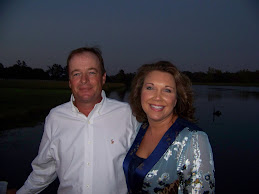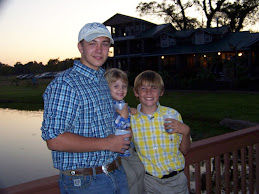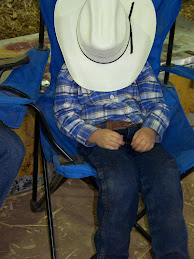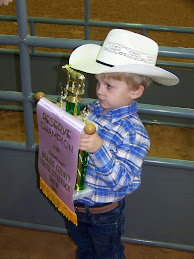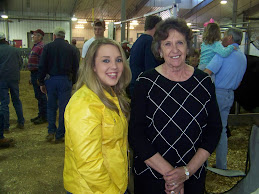I've had my moments when the thoughts of having a child with something wrong has crept into a reality. My child has had his moments of realization that something bad has gone on with him. Accepting reality was a process. We put the puzzle pieces of events and behaviors together. Over time, as we gained more insight to my son's problems and autism, we came to a realization that life was not going to be simple.
I wonder if Jesus had moments and thoughts like these as he grew up from a baby to a young man. I wonder if there was a moment as he learned about the shedding of blood for sin, that a sinking realization hit in the depths of his soul. I've imagined Jesus might have been praying in one of his moments of solitude when the puzzle pieces came together in his mind.
No one but God was there to tell him that He was to be the sacrifice. There was no doctor to say, by the way, you're going to have to die for our sins in this journey of life. No, I think that he was alone in prayer, pondering the scriptures, praying to his Heavenly Father, and putting the pieces together.
I imagine Jesus walking home from the garden praying. Surely, he was a young teenager. May be he was the age that Mary was when she found out that she was to give birth to the Messiah that he realized HE was going to be the sacrifice, the shed blood for our sins.
What a long walk from that garden. He probably felt an ache in the depth of his soul. His heart was in his stomach. I imagine as he walked from the garden to his home that he passed some children laughing and playing. He watched his mother prepare dinner for a moment, and then slipped out the door to stand by Joseph. Picking up the hammer, may be he just began working side by side with his earthly dad in silence, pondering the thoughts that have burdened his soul.
I don't know if those are the events that transpired, but I do know this. His burden was more for us than for himself. If he had heard children laughing and playing as he walked home from a time in the garden alone with God, I'm certain that he thought, "I'll do this for you." He might have kissed his mother's cheek and thought to himself, "I love you, and I'll sacrifice for you." Certainly, if he did stand by Joseph and work with him in silence his thought was, "I'll build a kingdom for you."
Even in our own disappointing and painful realizations and moments, Jesus was there. He's walked the path before us. He has felt our concerns, and he feels our hurts. He knows just where you are in your darkest thoughts, and can meet you there.
Jan 27, 2009
Now He Knows
I thought about Trent learning that he had brain damage. I wondered about his deep concerns. Did he have deep concerns, or was he just limited in is ability to tell me about them. I remember when he was two, three, four, years old. Slowly, the realization that something was not right with this child began to sink in.
There were moments, fleeting moments, quickly dismissed thoughts about the idea that something was not quite normal about him as I watched him play. Sometimes, the thoughts would linger a little longer. They would linger long enough that the depths of my soul would begin to ache, and my heart would sink to my stomach. Over time, the moments of concern and doubts would turn into a reality. My son has something wrong.
I wonder if Trent was wondering the same about himself. Did he know that something was wrong all along, but he just needed to be told in order for reality to sink in. Just like us parents with a child with autism we need to hear the real words from the doctor.
There is nothing that they can do to reverse the problem. Only therapy to help them learn how to function and have as normal of a life as possible; but, somehow, there is closure to the doubts and questions when we hear the truth about a bad situation. Okay, so now I know what's going on. I could see that thought all over his little face, even if he didn't say the words.
There were moments, fleeting moments, quickly dismissed thoughts about the idea that something was not quite normal about him as I watched him play. Sometimes, the thoughts would linger a little longer. They would linger long enough that the depths of my soul would begin to ache, and my heart would sink to my stomach. Over time, the moments of concern and doubts would turn into a reality. My son has something wrong.
I wonder if Trent was wondering the same about himself. Did he know that something was wrong all along, but he just needed to be told in order for reality to sink in. Just like us parents with a child with autism we need to hear the real words from the doctor.
There is nothing that they can do to reverse the problem. Only therapy to help them learn how to function and have as normal of a life as possible; but, somehow, there is closure to the doubts and questions when we hear the truth about a bad situation. Okay, so now I know what's going on. I could see that thought all over his little face, even if he didn't say the words.
A Little Brain Damage
Trent and I have had this ongoing conversation over the last few days. It takes place in the car as we're driving, just me and him. Trent is my nine year old with high functioning autism. I could tell something was on his mind, but I couldn't discern just what he was thinking about.
Finally, he told me that he thought his friend in Mrs. Seibert's class had brain damage. I asked him why he thought that. Trent went on to tell me that his friend's eyes wandered when he talked to him, and he never stopped talking. Then he asked me if his friend really did have brain damage. I told him yes.
Friend by friend, name by name, he went through his classmates over the next two days inquiring about whether or not they had brain damage. Each one, I asked him what he thought, and why. Each one, I answered his question with yes.
Trent's last question in this ongoing conversation was about himself. "Do I have brain damage, mom." I answered with a question back, "What do you think?"
"Yes," he said. "I think I might have some brain damage."
I told him that he had a little brain damage. I tried to compare it to a broken bone. Some people have a crack in their bone, and some people have bad breaks in their bones if they have an accident. Some people have a little brain damage, and some people have a lot of brain damage. Sometimes the damage gets better, sometimes it never heals just right.
"You just have to try harder at things, Trent." I tried to explain. He seemed to understand perfectly. In fact, he seemed relieved to know the truth. He smiled from ear to ear as we talked about him and his brain. He was comfortable with knowing more about who he was, and that it was okay.
Finally, he told me that he thought his friend in Mrs. Seibert's class had brain damage. I asked him why he thought that. Trent went on to tell me that his friend's eyes wandered when he talked to him, and he never stopped talking. Then he asked me if his friend really did have brain damage. I told him yes.
Friend by friend, name by name, he went through his classmates over the next two days inquiring about whether or not they had brain damage. Each one, I asked him what he thought, and why. Each one, I answered his question with yes.
Trent's last question in this ongoing conversation was about himself. "Do I have brain damage, mom." I answered with a question back, "What do you think?"
"Yes," he said. "I think I might have some brain damage."
I told him that he had a little brain damage. I tried to compare it to a broken bone. Some people have a crack in their bone, and some people have bad breaks in their bones if they have an accident. Some people have a little brain damage, and some people have a lot of brain damage. Sometimes the damage gets better, sometimes it never heals just right.
"You just have to try harder at things, Trent." I tried to explain. He seemed to understand perfectly. In fact, he seemed relieved to know the truth. He smiled from ear to ear as we talked about him and his brain. He was comfortable with knowing more about who he was, and that it was okay.
Subscribe to:
Comments (Atom)

